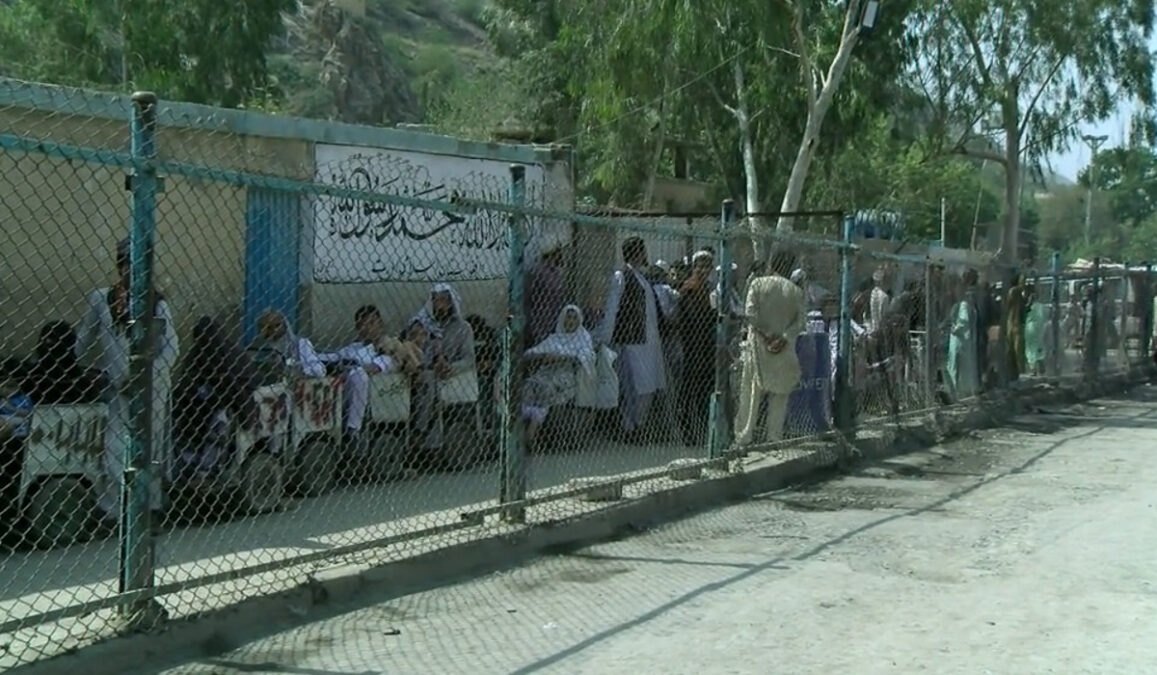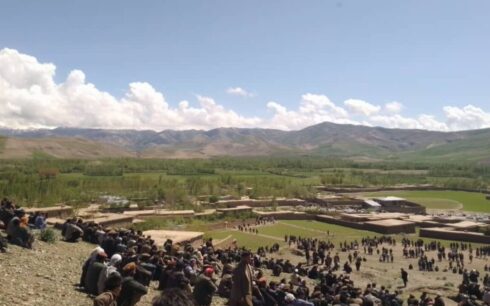As Pakistan’s November 1 deadline for all undocumented refugees from Afghanistan to leave the country, many of the migrants say they are facing an uncertain future and have appealed to international rights organizations to engage with Islamabad over their plight.
Many of them have said if they return to Afghanistan they will not only be threatened by the Taliban but that their girls will be deprived of their rights to education.
The caretaker government of Pakistan early this month announced a deadline which stipulates that over 1.73 million refugees from Afghanistan, who are undocumented, must leave the country voluntarily before November 1 – which is in seven days.
One refugee from Afghanistan, Waris Sadaat, appealed to the UN Agency for Refugees to engage with the Pakistani government and get them to stop the deportations.
“We call on the UN High Commissioner for Refugees (UNHCR) to [attempt] to delay the process of expelling the refugees and find a solution for it,” he said.
Zahir Bahand, a journalist from Afghanistan, who fled the Taliban and took refuge in Pakistan said the refugees are in a very vulnerable situation. “If Pakistan takes practical action to expel the refugees, a humanitarian disaster will happen,” he said.
According to Pakistani media reports, more than 59,560 refugees have been sent back to Afghanistan since the announcement.
Pakistani officials have said insecurity in their country is behind the decision, claiming 14 of 24 suicide bombings in Pakistan this year were carried out by Afghanistan nationals.
In a meeting with the Taliban’s Minister of Refugees and Repatriation, Abdul Rahman Rashid, the UNHCR representative in Afghanistan, Leonard Zulu, said that Islamabad had expressed readiness for a trilateral meeting between themselves, Afghanistan, and the UN.
Asadullah Nadim, a political analyst, said that Pakistan is using the presence of refugees as leverage. “Many Afghan refugees are seeking asylum abroad and their cases are being processed in Pakistan. The Western countries are interested in accepting them,” he said. “Therefore, Pakistan is seeking major leverage, and it will not cooperate with the Taliban and UN until it [Islamabad] is given major leverage.”
Pakistan’s decision to expel the refugees has been widely criticized by rights watchdogs including Human Rights Watch, Amnesty International and the UN, who warned that the return of the refugees could put their lives at risk.
Islamabad finalizes deportation plan
Pakistan media reported Tuesday that Islamabad has finalized formalities to deport Afghanistan nationals living in the country illegally. SANAA reported that refugees facing trial or have been convicted of serious crimes won’t be sent back.
However, Pakistan’s district administration, police, prosecution, and jail administration will be given special authority and from November 1, they can arrest and deport illegal Afghanistan citizens.
Undocumented Afghanistan refugees will reportedly be detained across the four provinces and will be kept in special centers during this process.
Pakistan’s Tribune reported that the Sindh government and Balochistan have joined forces to deport refugees back to Afghanistan. Addressing a joint press conference on Tuesday,
Sindh’s Home Minister Brig (retd) Haris Nawaz and Balochistan Information Minister Jaan Achakzai said they would be working together after November 1.
Nawaz said strict action will be taken against the unregistered foreigners and that the provincial government will facilitate migrants in their journey to their respective countries.
Achakzai said he met the Sindh interior minister to discuss the issue of illegal foreigners and to make joint efforts for their “evacuation”.





